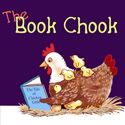 History
History"A great nation is a reading nation."
In a small library on a November afternoon in 1921, a stiff-lipped lady was busy with her scissors, shearing off the bottom third of Jessie Willcox Smith's poster for Children's Book Week. A poster showing books scattered in joyous abandon on the floor was more than she could bear to display! Our attitude toward children and their enjoyment of books has undergone considerable change since that day. The creation and growth of Children's Book Week has both resulted from and influenced this transformation. Since 1919, Children's Book Week has been celebrated nationally in schools, libraries, bookstores, clubs, private homes-any place where there are children and books. Educators, librarians, booksellers, and families have celebrated children's books and the love of reading with storytelling, parties, author and illustrator appearances, and other book related events.It all began with the idea that children's books can change lives. In 1913, Franklin K. Matthiews, the librarian of the Boy Scouts of America, began touring the country to promote higher standards in children's books. He proposed creating a Children's Book Week, which would be supported by all interested groups: publishers, booksellers, and librarians. Mathiews enlisted two important allies: Frederic G. Melcher, the visionary editor of Publishers Weekly (the publishing industry trade journal), and Anne Carroll Moore, the Superintendent of Children's Works at the New York Public Library and a major figure in the library world. With the help of Melcher and Moore, in 1916 the American Booksellers Association and the American Library Association cooperated with the Boy Scouts in sponsoring a Good Book Week. At the 1919 ABA convention, the Association committed to the organization of an annual Children's Book Week. A few months later, the official approval of the American Library Association was also secured during its first Children's Librarians session. In 1944, the newly-established Children's Book Council assumed responsibility for administering Children's Book Week. In 2008, Children’s Book Week moved from November to May. At that time, responsibility for Children’s Book Week, including planning official events and creating original materials, was transferred to Every Child a Reader, the philanthropic arm of the children’s publishing industry. The need for Children’s Book Week today is as essential as it was in 1919, and the task remains the realization of Frederic Melcher’s fundamental declaration: “A great nation is a reading nation.”
Future Dates of Children's Book Week:
2010: May 10 - 16
2011: May 2 - 8
2012: May 7 - 13
http://www.bookweekonline.com/








That was a really interesting post and it's always interesting to learn more about reading.
ReplyDeleteI agree, Kate. Thank you for the support!
ReplyDelete